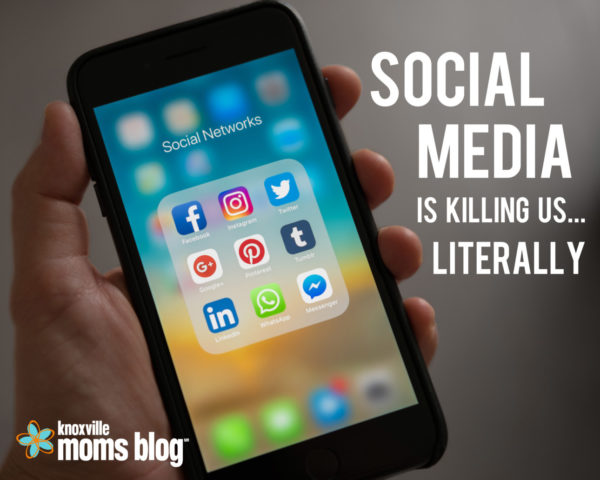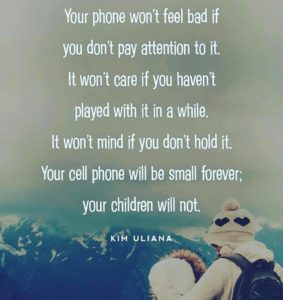 It happens…it could be because we are tired of hearing their constant whining for a phone, or because we want to upgrade ours to the latest model, or because we think that all their friends have one…we succumb to the pressure. We act carelessly. Our brain seems to regress like theirs, and we give them our old smartphone.
It happens…it could be because we are tired of hearing their constant whining for a phone, or because we want to upgrade ours to the latest model, or because we think that all their friends have one…we succumb to the pressure. We act carelessly. Our brain seems to regress like theirs, and we give them our old smartphone.
But pause for a second to think. There are things to consider before giving your child a smartphone.
What are we giving them?
In essence, we are giving them social media access, something we haven’t really thought about fully. Just like cigarettes in the 1950s, we’ve allowed smartphones and social media to be social norm before knowing the permanent side effects and damage they can cause, especially in children. Smartphone use and social media are so closely intertwined, especially in young people. This friendly pastime is becoming an addiction.
Food for thought: in preteens and teens, the midbrain is reorganizing itself and risk-taking is high and impulse control is low. I can’t imagine a worse time in a child’s life to have access to social media.
Luckily, research has started to surface about social media’s impact on kids. The American Academy of Pediatrics has warned about the potential for negative effects of social media in young kids and teens, including cyber-bullying and “Facebook depression.” “Facebook depression” has emerged as a serious problem for children. The AAP defined it “as depression that develops when preteens and teens spend a great deal of time on social media sites, such as Facebook, and then begin to exhibit classic symptoms of depression…As with offline depression, preadolescents and adolescents who suffer from Facebook depression are at risk for social isolation and sometimes turn to risky Internet sites and blogs for ‘help’ that may promote substance abuse, unsafe sexual practices, or aggressive or self-destructive behaviors.”
Digging deeper, I found the list below; studies have shown that social media isn’t very good for one’s mental well-being, and in some ways, can be pretty damaging:
It’s addictive
It triggers more sadness and less well-being
Comparing our lives with others’ lives is mentally unhealthy
It can lead to jealousy and a vicious cycle
We get caught in the delusion of thinking it will help
More friends on social media doesn’t mean you’re more social
Considering these findings, it’s no surprise that suicide rates in preteens and teens have increased drastically in the past decade. Most researchers agree that these issues have stemmed from social media use. This Washington Times article is just one of many written about this. “Citing federal data and two nationally representative surveys of more than 500,000 adolescents, researchers found a strong correlation between the time teens began using smartphones a decade ago and a sharp rise in reports of serious mental health issues.” Another study also found that girls in particular were at risk. Their suicide rate rose by 65% in those five years. The number of girls with severe depression rose by 58%.
The state of Utah is living proof. Its youth suicide rates have jumped up 141%. Suicide is now the biggest cause of death between the ages of 11-17. Kimberly Myers, the state’s suicide prevention coordinator stated that, “Too much technology and social media can also deprive kids of sleep, create unhealthy social comparisons and extend bullying from schools to the cyber world.” Findings based on CDC data show an increase in suicide rates among US teens from 2010-2015 — this increase occurred at the same time in which social media use surged.
Don’t think social media only affects children.
Adults aren’t immune to these issues. Studies done on children and teens apply to adults as well. Let’s face it: adults are just as guilty of always being on their phones. New words were invented to describe giving your phone more attention than those around you: “phone-snubbing” or “phubbing.” Yes this is a real thing, and the effects are truly damaging. It is a rising problem in couples and marriages. Daily Mail reports that “Snubbing someone mid-conversation in order to check our phone is on the rise as new research reveals we look at our handsets up to 150 TIMES a day.” Wow — that number is astronomical.
We need to reflect on what we are allowing our children (and ourselves) to be exposed to. This conversation needs to be had — we need to be educated about the realities of smartphones and social media.
I know, I know. I sound like a doomsday crazy person. So I’ll take a breath and say that I don’t believe social media in it of itself is evil. I have personal and business accounts on Facebook and Instagram. Social media has brought the world to our fingertips and so much good that has come from it. But like too much of any good thing, it’s easy to become addicted before we even realize it. So what do we do at this point?
Here are some ways we can help protect our children:
- Lead by example. When we have our faces buried in our phones, it teaches our kids that we value phones over them. It also teaches them that it’s okay to be on their phones all the time. Put the phone down and take a break. Be present with your kids when they walk through the door or when you come home. Give them the attention they crave. This also applies to our spouses or partners. Set the phone down and spend an allotted time with them to reconnect after a long day. Show your family that they are more important than your phone.
- Communication is key. Talk to your child about the realities of social media. Let them know that most things they view aren’t real. Most people filter or photoshop their photos. People post what they want to show, but not their real lives, and that’s okay. People can post what they want, but we need to be smart enough to take everything we see with a grain of salt. This helps our kids understand what they see so they don’t feel envious or start comparing.
- Delay exposure as long as possible. There are many options besides a smart phone to communicate with your child. From GPS watches, to tried and true dumb phones, you’ll still be able to communicate with them via text or call.
- If they do have social media accounts, follow them! Make sure their privacy settings are in place, but also help your child realize that there really is no such thing as privacy online. Anything posted will be seen by someone. Talk to your kids about the long-term effects of posting something, and that they should always think before they post.
- Put time limits in place. Keep an eye on the clock because they won’t be! Be aware of just how much your kids are on their phones or tablets. The average teen spends nine hours a day connected to social media.
- Plan more playdates with friends. Kids don’t need 655 friends! Four to six close friends are more than enough. Playdates provide a great environment to help kids learn how to plan real, in-person, social get-togethers.
- Spend more real in-person time as a family. Make your home a safe haven from the craziness of the world. In reality, kids crave that peace. They need that peace. Set aside family time together. You can play board games, go on hikes, go to a local park, have a dance party in your living room or just snuggle on the couch and read some books. Unplugging every now and then is a good habit.
- It’s okay to say no. Although your child may think they are the only one at school who doesn’t have a smart phone, they really aren’t. And it’s okay even if they are. As their parent, we have the responsibility to protect them physically, emotionally, and mentally. They won’t be happy, but that’s okay. We aren’t meant to be their friends. We are meant to help nurture and guide them so they will be safe.





















